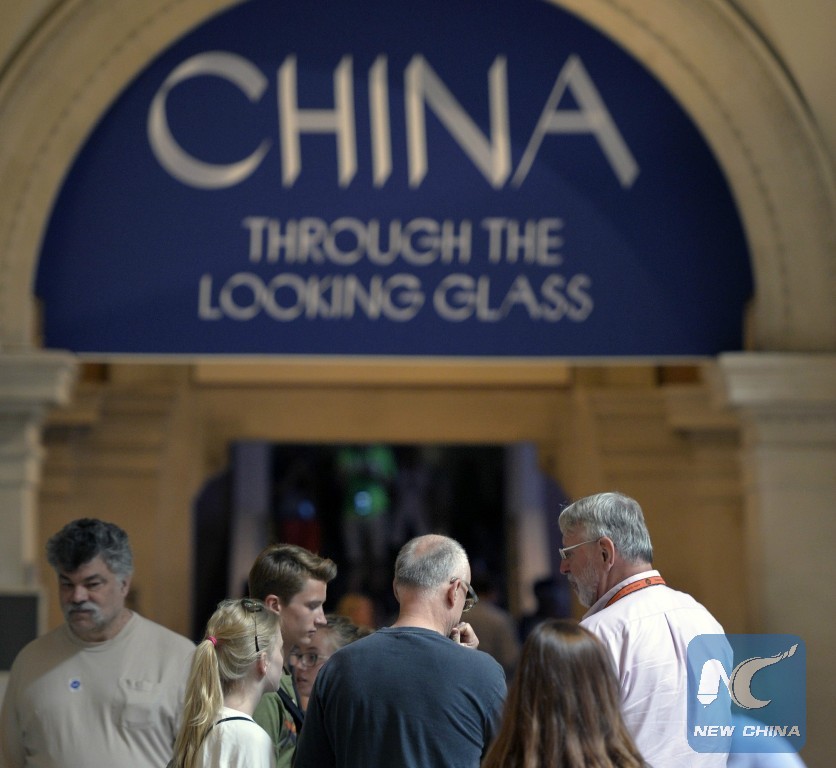
File Photo: People visit the Metropolitan Museum of Art in New York, the United States on July 28, 2015. (Xinhua/Wang Lei)
WASHINGTON, Oct. 5 (Xinhua) -- The four high-level dialogue mechanisms established between China and the United States help promote bilateral ties, according to U.S. officials and experts.
China and the United States held their first law enforcement and cybersecurity dialogue here on Wednesday, during which the two sides reached broad consensus on issues of counterterrorism, counter-narcotics, cybersecurity and immigration.
It was the last of the four high-level dialogues established during a meeting between Chinese President Xi Jinping and U.S. President Donald Trump in April.
In a statement last week, U.S. Secretary of State Rex Tillerson spoke highly of the significance of the U.S.-China relationship.
"Now more than ever, a strong, constructive relationship between the United States and China is important for the prosperity and stability of our two countries as well as the world," he said in a press statement released by the U.S. Department of State on the occasion of China's National Day, which fell on Sunday.
During a recent briefing here, U.S. State Department spokesperson Heather Nauert said the United States wanted to have "a good understanding and a good working relationship with China."
"The better that we can both understand one another, the more that we can have meetings to talk about areas of mutual concern, areas where we can better work together," said Nauert.
In a recent interview with Xinhua, Harvard professor Joseph Nye, who coined the term "soft power," said that dialogues between the largest developing country and the largest developed country are important.
"I think the dialogues are important and we do need to have talks," said Nye. "I think the more that Chinese and Americans have contact with each other and understand each other, the less likely they are to have worst case analysis of the other."
Nye cautioned that people sometimes exaggerate the question of other people's intentions, seeing them as enemies when they don't have to be enemies.
"I think the more contact there is, the better," said Nye. "If China becomes more attractive in the eyes of Americans and America becomes more attractive in the eyes of the Chinese, then we're both better off."
The four high-level dialogue mechanisms have set the course for future cooperation between Beijing and Washington. The other three dialogues cover diplomatic and security issues, the economy, and social and cultural issues.
William Jones, the Washington Bureau chief for Executive Intelligence Review news magazine, told Xinhua that he believed that while the social and cultural dialogue often doesn't get as much attention as the economic or security dialogues do, it may prove to be the most important dialogue of all in the long run.
"The history of our countries, particularly during the period of the Cold War, has served to proliferate a rather skewed view of each other as 'enemies'," said Jones.
"Much has to be done therefore to create a greater understanding of each other and of each other's histories and culture," said Jones. "Without that, it will be difficult to understand actions and intentions on both sides."

